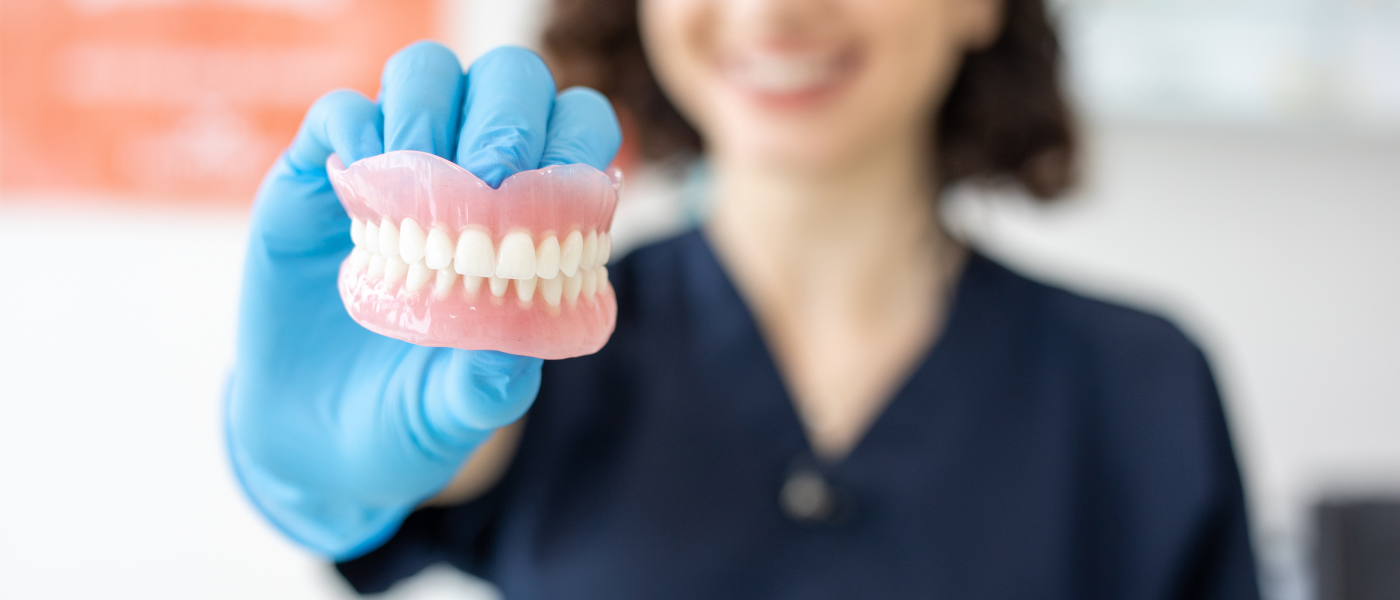Different Types of Dentures and Alternative Options

Dentures have been a popular solution for replacing missing teeth for centuries. While they continue to be an effective and affordable option, advances in dental technology have introduced alternative solutions that offer improved comfort, aesthetics, and function. In this comprehensive guide, we will explore the different types of dentures and alternative options available to those seeking to restore their smiles.
1. Traditional Complete Dentures
Traditional complete dentures are designed to replace all of the teeth in one or both dental arches (upper and lower). They consist of a removable acrylic that mimics the appearance of gums, with artificial teeth attached to it.
Pros:
-
- Traditional complete dentures are often more budget-friendly than other options.
- They have been a reliable option for many years.
Cons:
-
- Traditional complete dentures are less stable and usually require adhesives to stay in place.
- Over time, the jawbone will shrink due to lack of tooth roots, leading to ill-fitting dentures.
2. Partial Dentures
Partial dentures are used when a patient has some natural teeth remaining. They consist of a metal or acrylic framework that supports artificial teeth. These partial dentures are designed to fill in the gaps created by missing teeth and are held in place with clasps or precision attachments.
Pros:
-
- Partial dentures can help prevent natural teeth from shifting into the empty spaces.
- They can be designed to match the color and shape of your existing teeth.
Cons:
-
- Partial dentures require proper care and regular cleaning.
- Some individuals may find them uncomfortable or bulky.
3. Implant-Supported Dentures
Implant-supported dentures are a more stable and secure option compared to traditional dentures. They are anchored in place by dental implants, which are surgically placed into the jawbone to act as artificial tooth roots.
Pros:
-
- Implant-supported dentures are firmly anchored and do not slip or move.
- They provide better chewing efficiency compared to traditional dentures.
- Dental implants stimulate the jawbone, preventing bone loss.
Cons:
-
- Implant-supported dentures are typically more expensive due to the surgical procedure and implant placement.
- The process requires time for implant integration and healing.
4. All-on-4® Dentures
The All-on-4® treatment concept is a specific type of implant-supported denture that uses just four dental implants to support a full arch of teeth. This method is known for its efficiency and quicker recovery time compared to traditional implant-supported dentures.
Pros:
-
- Fewer implants are needed, reducing the cost and healing time.
- In some cases, patients can receive a temporary set of teeth on the same day as implant placement.
Cons:
-
- All-on-4® dentures may have limited adjustability compared to traditional implant-supported dentures.
5. Flexible Dentures
Flexible dentures, also known as Valplast or TCS dentures, are made from a flexible, lightweight material that provides comfort and a natural appearance. They are often used as partial dentures but can also be used for full arches.
Pros:
-
- The flexibility of the material can be more comfortable than traditional rigid acrylic.
- The gum-colored base and translucent nature of the material make them look more natural.
Cons:
-
- Flexible dentures may not be as durable as other types and can be more prone to wear and tear.
- They may not be suitable for patients with certain oral conditions or extensive tooth loss.
- Clasps often loosen with time and cannot be tightened.
6. Immediate Dentures
Immediate dentures are placed on the same day as tooth extraction. They are designed to provide you with teeth immediately after the removal of your natural teeth, allowing you to maintain your smile during the healing process.
Pros:
-
- Immediate dentures prevent you from experiencing a gap in your smile after extractions.
- They help protect the extraction sites and promote faster healing.
Cons:
-
- Immediate dentures require frequent adjustments as your mouth heals and changes.
- They are considered a temporary solution until your mouth fully heals and a permanent denture can be made.
Alternative Options to Dentures
In addition to the various types of dentures, there are alternative options for replacing missing teeth:
1. Dental Bridges
Dental bridges are a fixed prosthesis that uses adjacent teeth (or implants) as anchors to support a pontic (false tooth) in between. They are an excellent option for replacing one or more missing teeth and are permanently cemented in place.
Pros:
-
- Dental bridges are stable and do not require removal for cleaning.
- They look and feel like real teeth.
Cons:
-
- Preparing adjacent teeth may require the removal of healthy enamel.
- Bridges typically last 10-15 years.
2. Dental Implants
Dental implants are the gold standard for replacing missing teeth. They are surgically placed into the jawbone and provide a stable and long-lasting foundation for artificial teeth.
Pros:
-
- Dental implants can last a lifetime with proper care.
- They blend seamlessly with your natural teeth.
- Implants provide strong support for chewing and speaking.
Cons:
-
- Implant placement involves a surgical procedure.
- Implants can be more expensive than dentures and other options.
Choosing the right tooth replacement option depends on your individual needs, budget, and oral health. Dentures come in various types, each with its own set of advantages and disadvantages. Alternatives such as dental bridges and dental implants offer stable, long-term solutions that mimic the appearance and function of natural teeth.
Consult with your dentist to determine the best tooth replacement option for your unique circumstances. The goal is to restore your smile, oral function, and confidence, ensuring a healthier and happier life with a complete set of teeth.
For more information or to request an appointment, please click here or call our office at 856-343-4020.
